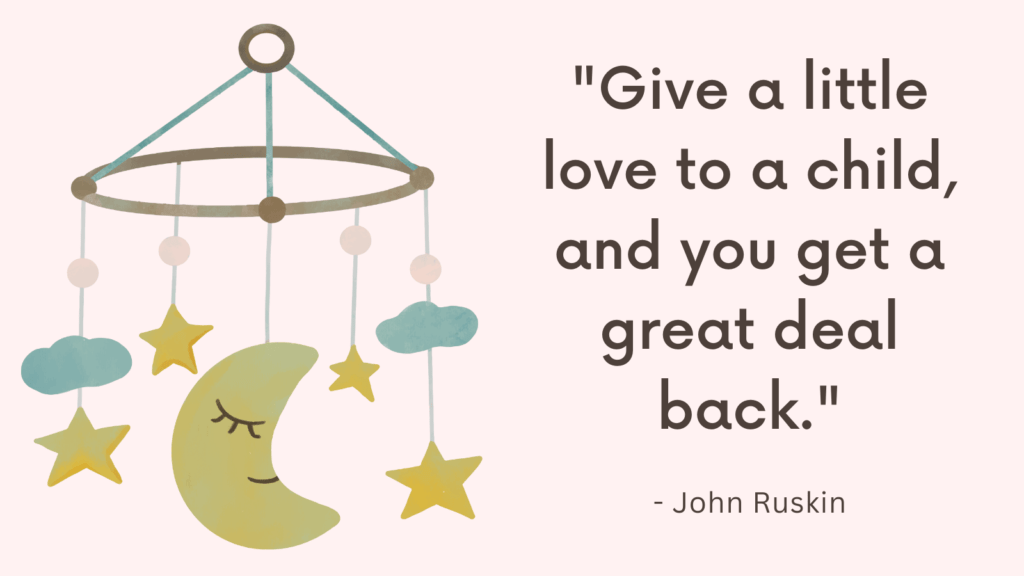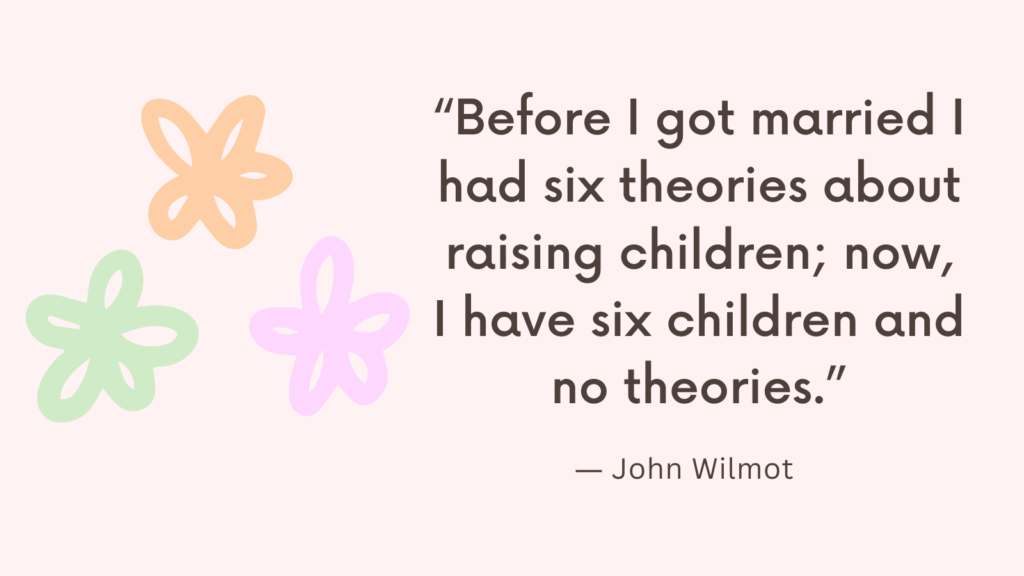In this post, you’re going to learn how to socialize toddler without daycare.
Importance of Socialization for Toddlers
Socialization plays a crucial role in a child’s overall development, including cognitive, emotional, and behavioral aspects.
During the toddler years, children begin to form their sense of self and learn how to navigate relationships with others.
1. Emotional Development
Socialization helps toddlers develop emotional skills such as empathy, understanding emotions, and self-regulation.
Through interactions with peers, children learn to recognize and respond to different emotions, develop empathy towards others, and manage their own emotions effectively.
These skills lay a foundation for healthy emotional well-being later in life.
2. Language and Communication Skills
Interacting with peers and adults during socialization activities enhances language development in toddlers.
Conversations, sharing stories, and engaging in play encourage language acquisition, vocabulary expansion, and the development of communication skills.
Through socialization, children learn to express their thoughts, listen to others, and engage in meaningful conversations.
Related: Best 10 Children’s Books About Self Esteem
3. Self-Confidence and Independence
Socialization provides opportunities for toddlers to develop a sense of self-confidence and independence.
Through positive interactions and feedback from peers and adults, children gain a sense of competence and learn to trust themselves.
This fosters independence, assertiveness, and a positive self-image, enabling them to navigate social situations with confidence.
4. Peer Relationships
Socialization offers opportunities for toddlers to form friendships and establish social bonds with their peers.
Friendship provides emotional support, a sense of belonging, and companionship.
Positive peer relationships contribute to the development of social skills, self-esteem, and overall well-being.
Related: Best 10 Gentle Parenting Books
How to Socialize Toddler Without Daycare?
Socialization is an essential aspect of a child’s development, contributing to their overall well-being and future success.
While daycare can provide opportunities for social interaction, there are various alternative ways to socialize your toddler if daycare is not an option.
1. Playdates
Organizing playdates with other families who have toddlers can be an excellent way to facilitate social interaction.
Invite friends or neighbors with children of similar age to your home or visit local parks where children often gather.
Encourage your toddler to engage in interactive play, share toys, and take turns, fostering important social skills such as cooperation and empathy.
2. Parent-Child Classes
Enroll your toddler in parent-child classes offered in your community.
These classes provide structured activities and socialization opportunities for both you and your toddler.
Look for classes such as art, music, dance, or sensory play, where children can interact and engage with peers while you can connect with other parents.
Related: Best 10 Books To Prepare Toddler For New Baby
3. Storytime at the Library
Many libraries offer regular storytimes specifically designed for toddlers.
Attending these sessions allows your child to listen to stories, sing songs, and participate in group activities alongside other children.
Interacting with other toddlers in a guided setting cultivates listening skills, following instructions, and taking turns.
4. Community Events
Keep an eye out for community events that cater to families with young children.
Festivals, fairs, or outdoor concerts often feature activities for toddlers, including opportunities to interact with others.
Take advantage of such events to expose your child to different environments and socialize with peers.
Related: Top 10 Phrases To Use When Your Toddler Doesn’t Listen
5. Local Playground Visits
Regular visits to local playgrounds can be an excellent way for your toddler to interact with other children.
Encourage your child to initiate conversations, join group games, or take turns on equipment.
You can also strike up conversations with other parents, fostering connections for both you and your child.
6. Join Parenting Groups
Online parenting groups or forums can provide valuable resources and connections for both parents and toddlers.
Seek out local parenting groups that organize meetups or playgroups.
These gatherings offer opportunities for children to socialize while allowing parents to network and exchange advice.
Related: Why Does My Toddler Hate Me? Top 8 Reasons
7. Enroll in Recreational Classes
Check if your community offers recreational classes such as swimming, gymnastics, or sports specifically designed for toddlers.
These classes not only promote physical development but also foster socialization as children interact with one another during the sessions.
8. Visit Family and Friends
Make an effort to visit extended family members or close friends who have children.
Spending time together allows your toddler to develop relationships with cousins or friends’ children, providing valuable social interaction in a comfortable and familiar environment.
9. Create a Social Circle
Reach out to other parents in your neighborhood or within your existing social circles who have toddlers.
Establishing a regular gathering, such as a weekly playgroup or a shared meal, allows children to socialize regularly while building long-lasting friendships.
Related: Is My Child Ready For Potty Training Quiz
How to Help a Shy Toddler Interact with Others?
Shyness is a common trait observed in many toddlers, and it can sometimes impact their ability to interact with others.
As a parent or caregiver, there are several strategies you can implement to support your shy toddler’s social development.
1. Model Positive Social Behavior
Children learn by observing their caregivers, so it’s essential to model positive social behavior.
Demonstrate appropriate greetings, conversations, sharing, and turn-taking during daily interactions.
By modeling these skills consistently, you provide your shy toddler with tangible examples of how to engage with others effectively.
2. Gradual Exposure to New Social Situations
When introducing your toddler to new social environments, it’s important to do so gradually.
Start with low-pressure situations, such as one-on-one playdates with a familiar child or family member.
As your child becomes more comfortable, gradually increase the complexity and number of people present.
This approach allows them to build confidence and develop social skills at their own pace.
Related: How to Stop Toddler from Throwing Food?
3. Encourage and Praise Efforts
Acknowledge your toddler’s efforts to engage with others, even if they are small steps.
Encouraging phrases like “You’re doing a great job talking to your friend” or “I noticed you shared your toy – that was so kind” can boost their self-esteem and motivate them to continue practicing their social skills.
4. Encourage Parallel Play
Parallel play refers to toddlers playing alongside each other without direct engagement.
It is a normal stage of social development, especially for shy toddlers who may feel more comfortable in this type of play.
Encourage parallel play by providing opportunities for your child to engage with others while respecting their need for personal space.
Related: Best 10 Picky Eater Books
5. Read Books about Social Skills
Reading books with your toddler that explore social skills and emotions can be an effective way to teach and discuss important concepts.
Look for age-appropriate books that address topics like making friends, sharing, empathy, and overcoming shyness.
These stories can help your child understand and relate to different social situations.
6. Encourage Independence
Support your toddler’s growing independence by allowing them to make choices and take responsibility for certain tasks.
When children feel empowered, they often gain the confidence needed to interact more comfortably with others.
Encourage decision-making opportunities appropriate for their age, such as choosing a game to play or picking out their clothes for the day.
Related: Best 3 Year Old Birthday Themes
Conclusion
While daycare offers structured socialization opportunities, it’s not the only way for toddlers to develop important social skills.
By organizing playdates, participating in community events, enrolling in classes, and connecting with other parents, you can actively facilitate your child’s social development.
Remember, each child is unique, so observe your toddler’s preferences and adapt these strategies to suit their individual needs.
With dedication and creativity, you can provide meaningful socialization experiences for your toddler outside of daycare.
FAQ
How early should I start socializing my toddler?
Socialization can begin as early as infancy, with interactions between the child and their caregivers.
However, intentional socializing with peers can be introduced gradually around 12-18 months when toddlers start to show an interest in other children.
What should I do if my toddler exhibits challenging behavior during social interactions?
Challenging behavior is a normal part of a child’s social development.
It’s important to respond calmly and consistently to such behavior, emphasizing positive alternatives.
Model appropriate behavior, use clear and simple language to explain expectations, and reinforce positive interactions using praise and rewards.
Are virtual interactions or screen time suitable for toddler socialization?
While virtual interactions can provide limited social engagement, in-person interactions remain essential for developing crucial social skills.
Excessive screen time can hinder social development, so it is recommended to prioritize real-world interactions for toddlers.
Related: Top 11 Parenting Myths That Are All Too Easy To Believe
What if my toddler experiences difficulty in making friends?
Some toddlers may take longer to develop close friendships, which is normal.
Encourage social opportunities, provide support, and help your child build social skills gradually.
Be patient and supportive, and consider seeking guidance from a child development professional if concerns persist.
How important is parental involvement in toddler socialization?
Parental involvement is crucial for supporting a toddler’s social development.
Act as a facilitator, encouraging and guiding your child’s interactions, while also providing them space to explore relationships independently.
Modeling positive social behavior and nurturing emotional connections will greatly benefit their development.
Related: How To Deescalate A Child? Top 12 Tips




